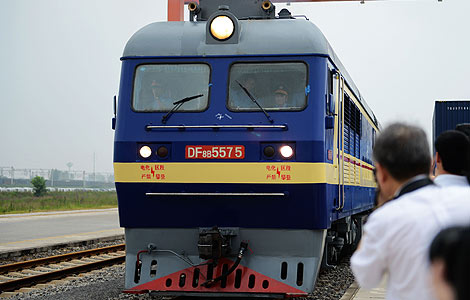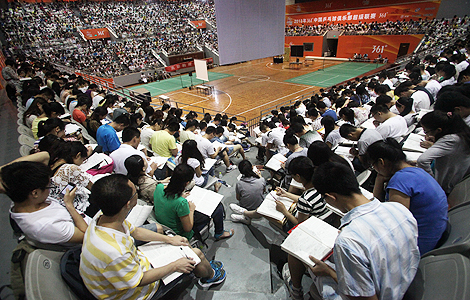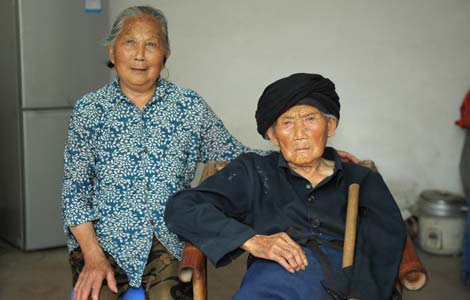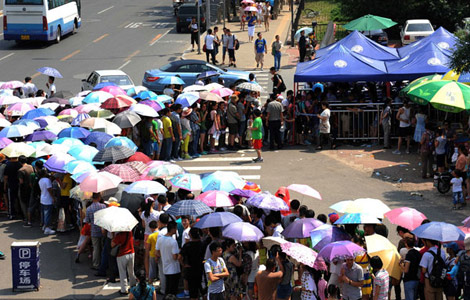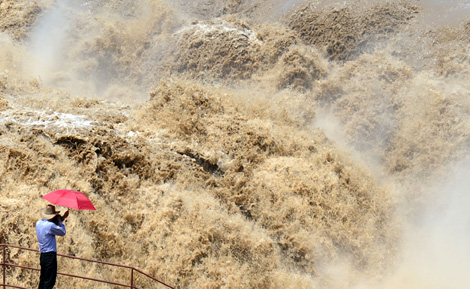

|
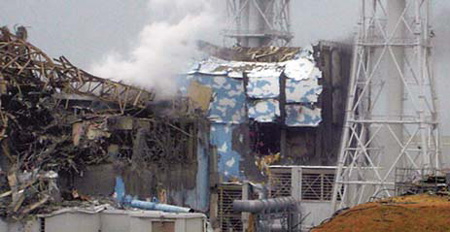 Steam drifts over two of the crippled reactors (No 4 center, and No 3 left) at the Fukushima Daiichi Nuclear Power Plant on Tuesday. [Photo/Agencies] |
Japan's worst crisis since World War II continued to escalate on Wednesday, as emergency workers pulled out from a crippled nuclear reactor where radiation levels surged in the quake- and tsunami-ravaged northeast.
Questions about the long-term safety of nuclear power plants have been resurrected, but the immediate issues are the survival and health of people in the area.
Worries of widespread contamination loom large, as nearby residents were evacuated or asked to stay indoors.
Japan's capital, Tokyo, which sits some 240 km south of the plant, has reported slightly elevated radiation levels. The Japanese government said the increase is nothing to worry about at this point. Kan also said, however, that "the danger of further radiation leaks is increasing".
|
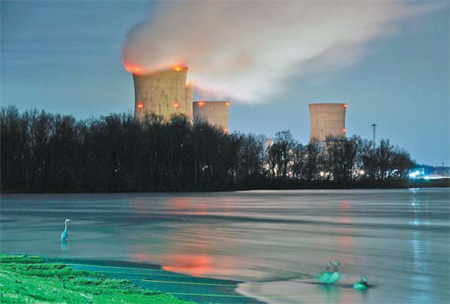 Birds wade on Tuesday along the Susquehanna River near the Three Mile Island plant. The US suffered its most serious nuclear accident there, in Middletown, Pennsylvania, in March 1979. [Photo/Agencies] |
Recovery and reconstruction costs appear certain to surpass $180 billion, an estimate economists made before the situation dramatically worsened with two explosions Tuesday. Fears of nuclear radiation in Japan have overwhelmed the twin disasters on Friday. About 12,000 people are listed as dead or missing, and officials believe the final toll will be much higher.
Already, the crisis has seen the evacuation of more people than the explosion and fire at Chernobyl in 1986, the worst on record. And with multiple blasts at its plants, a "highly rare" scene in the nuclear industry, experts say the mounting crisis in Japan will go down as history's second-worst nuclear accident.
The incidents at Fukushima have sent shockwaves around the globe, provoking rounds of fresh sentiment against nuclear power. Earlier catastrophes sparked similar responses and halted plans to build nuclear reactors in many industrialized countries for years.
G.R. Corey, who was then vice-chairman of Commonwealth Edison Co, wrote in a review of the partial core meltdown at Three Mile Island in 1979: "The immediate effect of the accident was to raise questions and slow down the development of nuclear power. Its secondary effect has been to stimulate a wide discussion of energy options.

